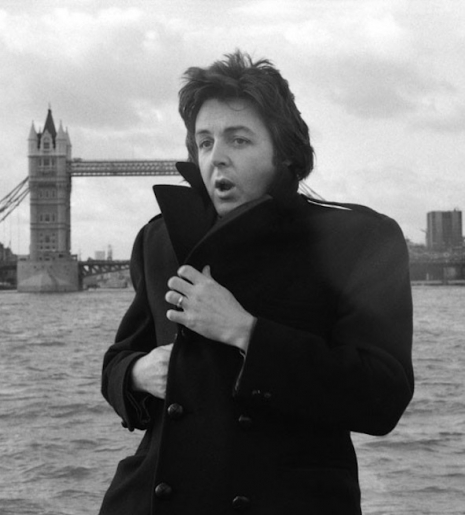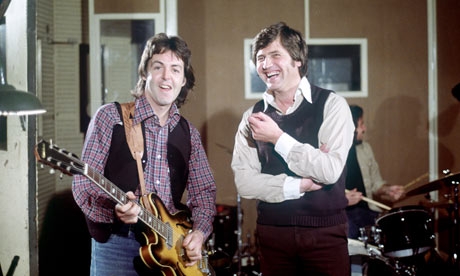
When The Beatles split-up in 1970 the music press divided the pop world into two camps: those for John Lennon and those against Paul McCartney (who, coincidentally met each other for the first time 59 years ago today). That both camps were basically the same thing meant McCartney had rough ride from “hip” musos over the next decades.
McCartney was painted as straight, safe, vanilla and very very bland—the sort of music yer mom and dad listened to when riding an elevator. It was fueled in large part by his former songwriting pal John Lennon’s vicious public spat with him. Lennon excoriated McCartney in his song “How Do You Sleep?” claiming the only thing he’d done was “Yesterday.”
Lennon was perceived as cool. McCartney was seen as square, fake and lacking any real artistic credibility—whatever that may be. He was the lesser half of the writing partnership Lennon & McCartney. This was how the music press in general and the British music press in particular painted the former Beatles. Of course it was wrong—very wrong. McCartney was the cool one, the smart one, the one who was hanging out with all those avant garde artists on the edge. He didn’t have to try on different party hats to find out who he was—he knew instinctively. The way the music press wrote about him you would never have known. But then again music journalists only write for themselves and their tiny band of fellow journalists—they do not write for the public or really understand that popular music is meant for all—the clue’s in its name—it’s not an exclusive club.
How McCartney weathered it all while starting out on his solo career, raising a family with his wife Linda, then forming the band Wings reveals just how strong and determined a character/a talent is James Paul McCartney.
Understandably, post-Beatles McCartney was always cagey about giving interviews. He knew (and knows) how interviewers turn words to fit their own preconceived opinions and how interviewers like to make themselves the star of the interview.
One of McCartney’s best ever interviews came in 1978, when he was featured in a short film for Melvyn Bragg’s The South Bank Show.

McCartney and Melvyn Bragg, 1978.
The South Bank Show was devised by Bragg as an arts magazine show that would cover high and low art—from TV and films to theater and pop music. This seems utterly run-of-the-mill now but back in the seventies this hi/lo concept was considered shocking. Pop music was in no way comparable to classical music. Television was never in the same class as theater, etcetera etcetera. Bragg was challenging the perceived orthodoxy when he kicked the whole thing off with The South Bank Show in January 1978, creating the kind of mix of high and low culture we take so very much for granted today.
The South Bank Show was originally a magazine program that featured one or two short films, plus a studio interview and usually some kind of performance. During the first series this morphed into one hour profiles of artists, writers, film directors and performers which remained the format.
Paul McCartney appeared in the very first episode in a short insert documentary filmed during the recording of the song “Mull of Kintyre.” McCartney is open to Bragg’s questions and even goes so far as to explain how he writes, giving examples of some of his best known songs. He also discusses the hurt he felt over the bust-up with Lennon and ends by explaining how he gets a thrill from hearing people whistling his tunes—or as he goes on to say, how he once heard a bird whistling a riff from one of his hits.
The following is the whole interview repackaged for Bragg’s The South Bank Show: Originals series recently broadcast on Sky Arts. It opens with Bragg talking about his memory of interviewing McCartney and contains comment from journalist Clive James who rightly describes Paul McCartney as a genius.